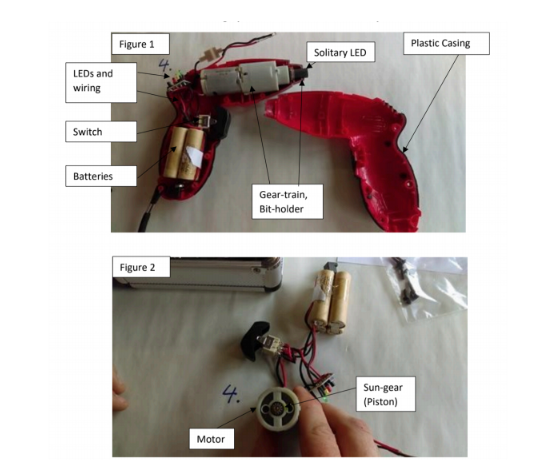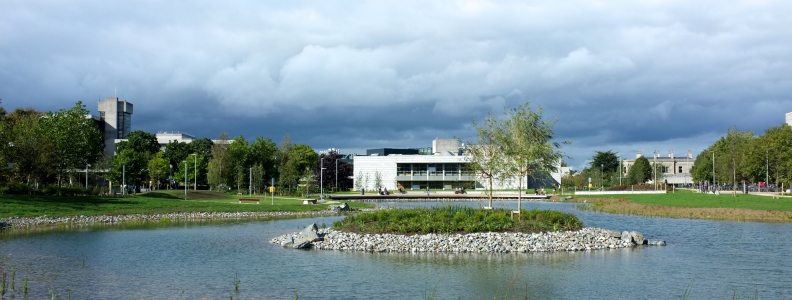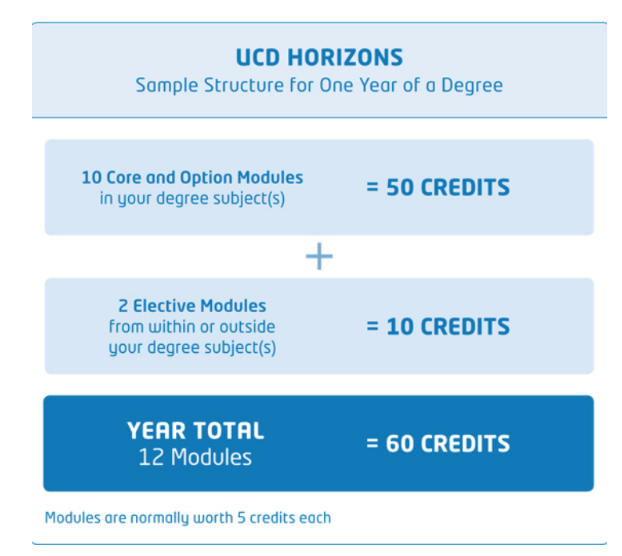Current Engineering Student Aoife explains what electives are in UCD and how she has benefited from them while studying engineering
“What’s all this about being able to take classes from different courses, not from the course you’re studying?”
This is a common question I get asked when meeting students from across Ireland who are in the throws of making their dreaded CAO decisions. My name’s Aoife Doyle, I’m currently in my 4th year of studying Biomedical Engineering in UCD, and I get to meet potential future UCD students in my role as a student ambassador. UCD is Ireland’s largest University, and because of this, a lot of people have heard of a sibling/friend/neighbour talking about being in UCD and taking a class in Ancient Greek, when they’re actually studying electronic engineering. While these people may not have an in-depth knowledge of what an engineer does, they’re fairly certain it doesn’t involve learning about the goings-on of Zeus in Mount Olympus.
So what is all this? This is UCD Horizons Electives.
Electives are a really interesting part of coming to UCD. To summarise what it means; it allows for students who love music, but who are going to focus on a career in medicine (because apparently it makes slightly more money), to get the chance to learn about opera, while also allowing students who’re going to study english, and who really enjoyed ‘Breaking Bad’, to get an introduction to organic chemistry.
The way that UCD trimesters are structured means that generally students take 6 modules from September to December, and then take 6 new modules from January to May. This means that everyone usually takes 12 modules a year (engineering maths skills 👌 ). While 10 of these modules will be from the chosen course that you’ve chosen to study, 2 of them are considered to be electives and can be from anywhere in the college [2]. It’s generally recommended that you split them up, and take 1 a trimester. Electives can be ‘in-programme’, meaning that you can take an extra module from the faculty you’re studying in, or ‘general’ which means that the module is from another college faculty [2].
From my own experience in UCD, I’ve chosen to do one general elective and one in-programme elective every year. In first year, I took a french module, ‘French General Purposes 4’, which is the language I studied for my Leaving Cert. This elective involved a small class, and was very interactive. I also took an elective in the engineering module ‘Design & Materials’.
In second year, I took an agricultural science module, ‘Environmental Change & Agriculture’ which not only went into reasons behind climate change (and the arguments that deniers may pose), but also described the effect that farming has on climate change, and how agriculture is changing in relation to that. As a city gal, (Kilkenny is a city!) this one gave me a huge amount of new information. I also took ‘Mechanical Engineering Design I’ which involved working in groups to redesign existing devices, like a drill.

Reverse engineering and improvement of a drill as part of a group project for ‘Mechanical Engineering Design I’.
I really enjoyed the general elective I took in third year which was ‘Conceptual Physics’. Again this involved climate change, along with whether or not life may exist outside of earth, as well as Einstein’s Theory of Relativity – a concept which I still cannot get my head around! To prepare for this blog post I’ve asked a few friends about electives they’ve taken and enjoyed. One friend just said ‘languages’, and has taken several levels of French and Italian modules (She’s also Polish but has grown up in Ireland, she clearly has a head for languages!). Another friend doing Biomedical Engineering has only taken in-programme electives, mainly from the mechanical engineering side of life. Her advice was not to worry about being overworked if you do take something in-programme, as long as you’re interested. She never felt like she was under more pressure than people who had chosen general electives. Apart from that, an American friend took a module in Northern Irish history to get better acquainted with this side of the pond, and other people have recommended modules from Arts & Humanities, such as ‘War: Ancient and modern’.
Factors for choosing electives may include;
- Interest
- Timetabling
- Workload
- Assessment method (Group projects? Public Speaking?)
While there are many factors involved in choosing an elective, available space in the module being another, the one that really matters is whether you’re interested in the module. That’s certainly what makes the difference when one is in the midst of a pile of assignments in week 7 of the semester.
And for those of you that may be very indecisive like myself, don’t worry, there is a period of time that you can change your mind after you’ve tried an elective!
To find out more about UCD’s Horizons Programme visit here.
If you are interested in studying Engineering in UCD you can find out more information about our courses here.








